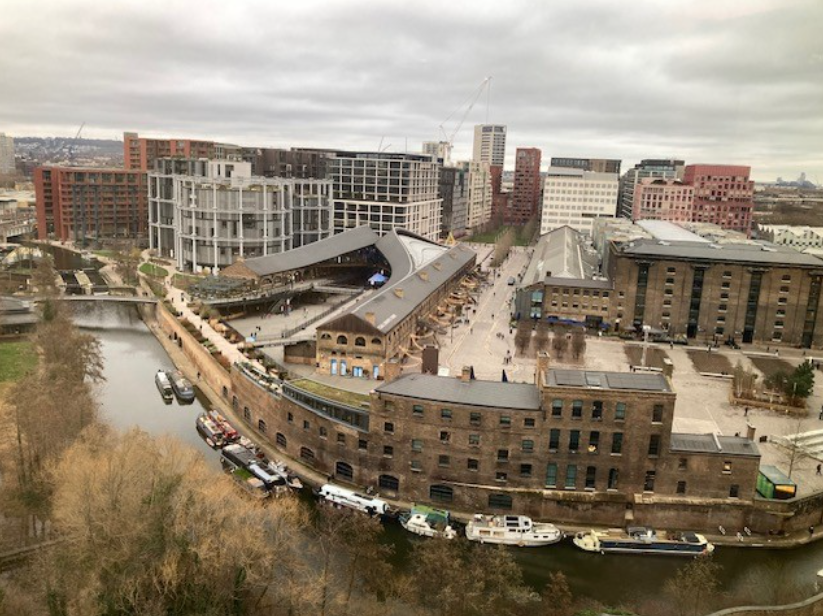Posted by fgcstudy
19 March 2024For the 5th year in a row, Camden Council organised their Valentines Day event ‘Love Shows Up’, on 14 February 2024. The motto of the event ‘To Love is To Act’ was displayed on a big banner at the venue. This year, the event was centred on Family Group Conferences (FGCs). Attendees included parent and care experienced groups from Hertfordshire, Telford and Brighton, practitioners from Camden and other local authorities and academics from across the UK focused on studying FGC.

The event was structured around two discussion circles – circle one about the practice of FGC, and circle two about how we understand FGC. Safeguarding Family Group Conference study team members Lorna Stabler and Bekkah Bernheim were invited into circle two, alongside other academics and people with experience of having their own FGC.
The event started with ‘Mingle-Mingle’, an ice breaking exercise for the participants to get to know each other better. The emphasis was on speaking to people that were new to you, and sharing details that felt they allowed you to learn beyond the surface level.
Mary Mitchell from the University of Edinburgh opened the discussions with reflections on the application of Recognition Theory to family group conferencing in statutory work with families. She discussed that Recognition comprised of Love, Respect and Solidarity – and how FGC incorporated these elements. Misrecognition (or not being recognised) can cause harm, including a sense of anger, shame, or frustration. Based on her research, she observed that FGCs allow space for people to be heard – families as well as practitioners. While it is not a panacea, it has the potential to bring recognition and reciprocity in human interactions.
In the first circle, practitioners shared their experiences of taking part in FGCs – including the significance of connecting with people such as through a shared language, sharing power by enabling participants to make decisions that are often outside of their control, such as where and when the meeting is held, the importance of the environment reached through food and music, and how essential it is to be non-judgmental, and to listen and respect young people.
Those with lived experience of social work intervention shared how people can feel powerless in statutory processes of safeguarding, and in voluntary processes like FGCs. There was an understanding that young people and families also empowered practitioners and the learning in FGC processes was mutual and reciprocal. To quote one of the participants,
“You are my other you, if I love and empower you, I love and empower myself.”
In Circle Two, the SFGC research team shared their ideas about the significance of ‘place and space’ for FGCs, building on the work shared by Camden social worker Martin Hampton. They challenged the idea of ‘neutral’ spaces which may be perceived differently by practitioners and family members. They shared two vignettes representing two different perspectives about an FGC – those of the mum to be of a child, and of the unborn child’s social worker. The vignettes evoked diverse responses from around the room and the sharing of stories from practice.
The discussion between academics, practitioners and those who had held their own FGCs suggested that not everyone experiences FGC in the same way, and outcomes will look different for different people. It is important to think about how FGCs are conducted and how an active effort is made to share power, to listen to families, children and young people and have them lead the decision-making process.
#relationalactivism #wesupportlove #closetopeople #connectionoverdistance #trustbridges #love up #relationshipsmakeadifference #camden #camdencouncil #familygroupconference